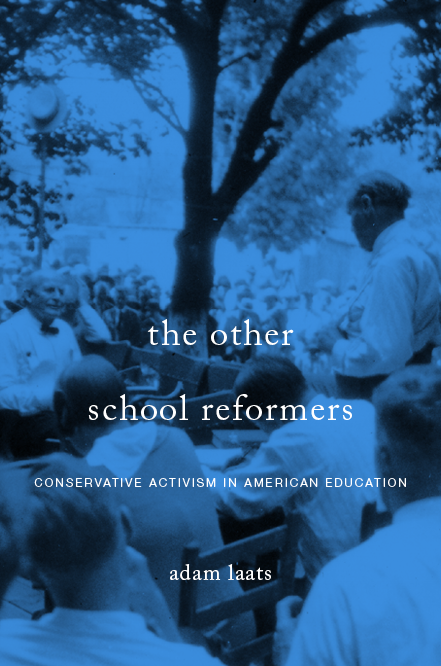Outsiders are telling public school families that we must follow the rich man’s elitist religion of evolution, that we no longer have what the Kentucky Constitution says is the right to worship Almighty God. Instead, this fascist method teaches that our children are the property of the state.
–Matt Singleton, Frankfort, Kentucky, July 2013
Why do so many Americans oppose the teaching of evolution in schools?
The knee-jerk answer is that people fight against mainstream science for religious reasons.
A news story out of Kentucky reminds us that we need to say, “Yes, but…”
Opposition to evolution education in the United States incorporates ideas about religion and science, but we can’t stop there. If we hope to understand creationism, we need to unpick the tangled skein of ideas that can make up anti-evolution ideology.
This is something that science pundits such as PZ Myers and Jerry Coyne seem unwilling to acknowledge. America does not face a clear-cut battle between “Science” and “Religion,” between “Knowledge” and “Ignorance,” but a much more stubborn conflict between convoluted collections of ideas, ideas that have grown together over time. Some science advocates limit themselves to berating creationists for ignorance of evolution, to ridiculing creationists for reactionary adherence to religion. Such attacks may satisfy our sympathizers, but by willfully mischaracterizing anti-evolutionism, these pro-“science” bloggers only compound the difficulties of healing culture-war divisions.
And those divisions are indeed more complex than activists on either side tend to admit.
Case in point: a notice recently in the Huffington Post drew our attention to this story from Kentucky’s Courier-Journal. Reporter Mike Wynn described a public meeting over Kentucky’s adoption of the Next Generation Science Standards. As Wynn reports, opponents of evolution offered comments to the state board of education. Those comments offer a window into the complicated thinking of anti-evolution activists.
Matt Singleton, for instance, read a statement to the board describing his opposition to the new evolution-friendly science standards.
“Outsiders,” Singleton read,
Are telling public school families that we must follow the rich man’s elitist religion of evolution, that we no longer have what the Kentucky Constitution says is the right to worship Almighty God. Instead, this fascist method teaches that our children are the property of the state.
As I argued in my 1920s book, anti-evolution activists have always made this sort of intellectual scattershot attack on evolution. This kind of anti-evolutionism can’t be reduced to merely a theological or scientific argument. If we hope to understand it, we need to understand the broad intellectual and cultural implications of the argument. If we want to make sense of it, we must see it for what it is: an “anti-evolution” argument that moves far beyond the boundaries of religion or science.
Some evolution proponents might dismiss The Reverend Singleton’s rant as merely ignorant. I admit, my first response when someone howls about “outsiders” and “fascist[s]” is to assume we have reached the territory of sea-monsters and sandwich-sign prophets.
But that sort of glib dismissal misses the point. It does not help us understand why this bundle of anti-evolution ideas remains so politically potent. Whatever we may think of the connections Singleton makes between region, religion, and rights, those connections make sense to significant numbers of Americans. It is worth our time to try to understand them.
As a start, let’s try to list all the different reasons for opposing mainstream science education that Singleton packs into this paragraph.
1.) Evolution comes from somewhere else. (“Outsiders”)
1a.) As an import, evolution is illegitimate.
2.) Evolution is for the rich. (“rich man’s . . . elitist”)
2a.) This elitism calls for popular opposition.
3.) Evolution is a religion. (“religion of evolution”)
3a.) As a religion, it can’t be taught in public schools.
4.) Evolution destroys traditional Baptist religion. (“we no longer have . . . the right to worship Almighty God.”)
4a.) As an attack on religion, it can’t be taught in public schools.
5.) Traditional religion is a Constitutional right. (“the Kentucky Constitution says is the right to worship”)
6.) Evolution is dictatorial. (“fascist method”)
7.) Evolution imposes illegitimate government control over children. (“teaches that our children are property of the state.”)
The Reverend Singleton does not want Kentucky schoolchildren to learn evolution. But we woefully misunderstand his anti-evolutionism if we simply label him an opponent of “science” and move on. We also miss the boat if we say too simply that Singleton’s opposition is due to “religious” reasons. Singleton’s fight against evolution combines a complex bundle of ideas. That bundle implies certain attitudes toward science and religion. But it is misleading to say that Singleton is motivated only by “anti-science” attitudes. Nowhere in his statement—at least in the part published by the Courier-Journal—does Singleton attack science. And nowhere does Singleton argue that true Biblical faith demands belief in six literal days of creation.
In the American context, we might assume that Singleton believes such things. But his political argument here includes a much broader bundle of ideas and slogans.
Anyone who hopes to improve evolution education in the United States must start by understanding the complexity of that bundle. It is not enough to dismiss such arguments as “ignorant” or “irrelevant.” They make sense to people such as The Reverend Singleton. They also make sense to the politically powerful voting populace who continue to support the teaching of creationism in America’s science classrooms.




